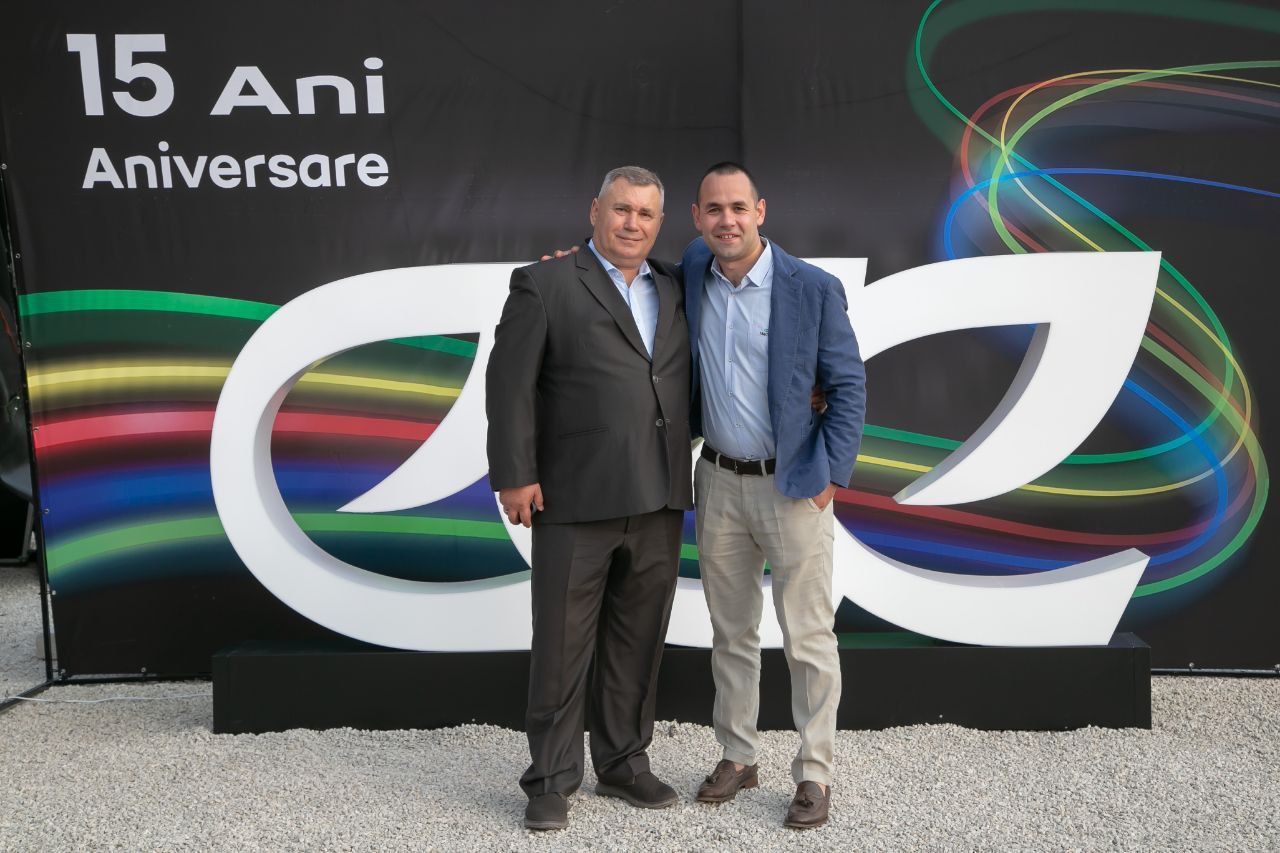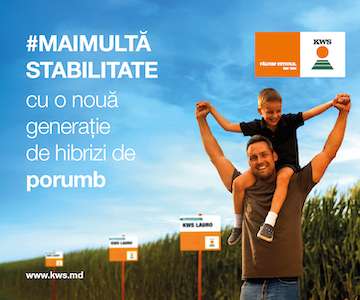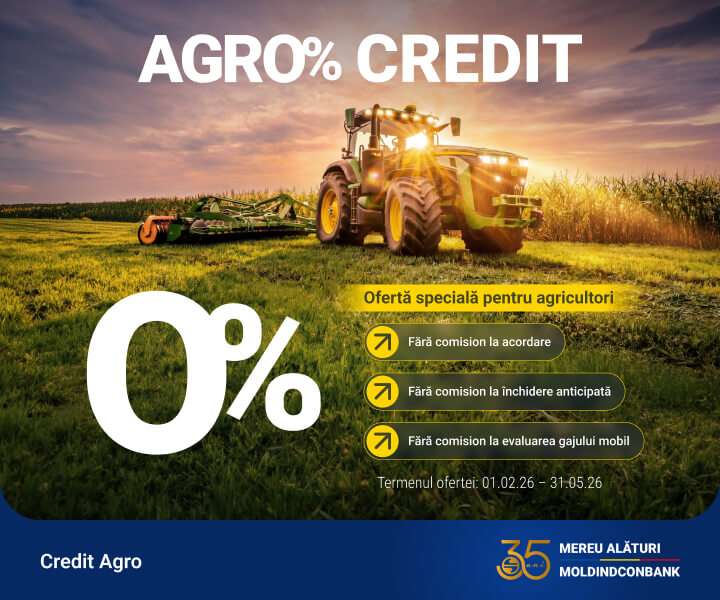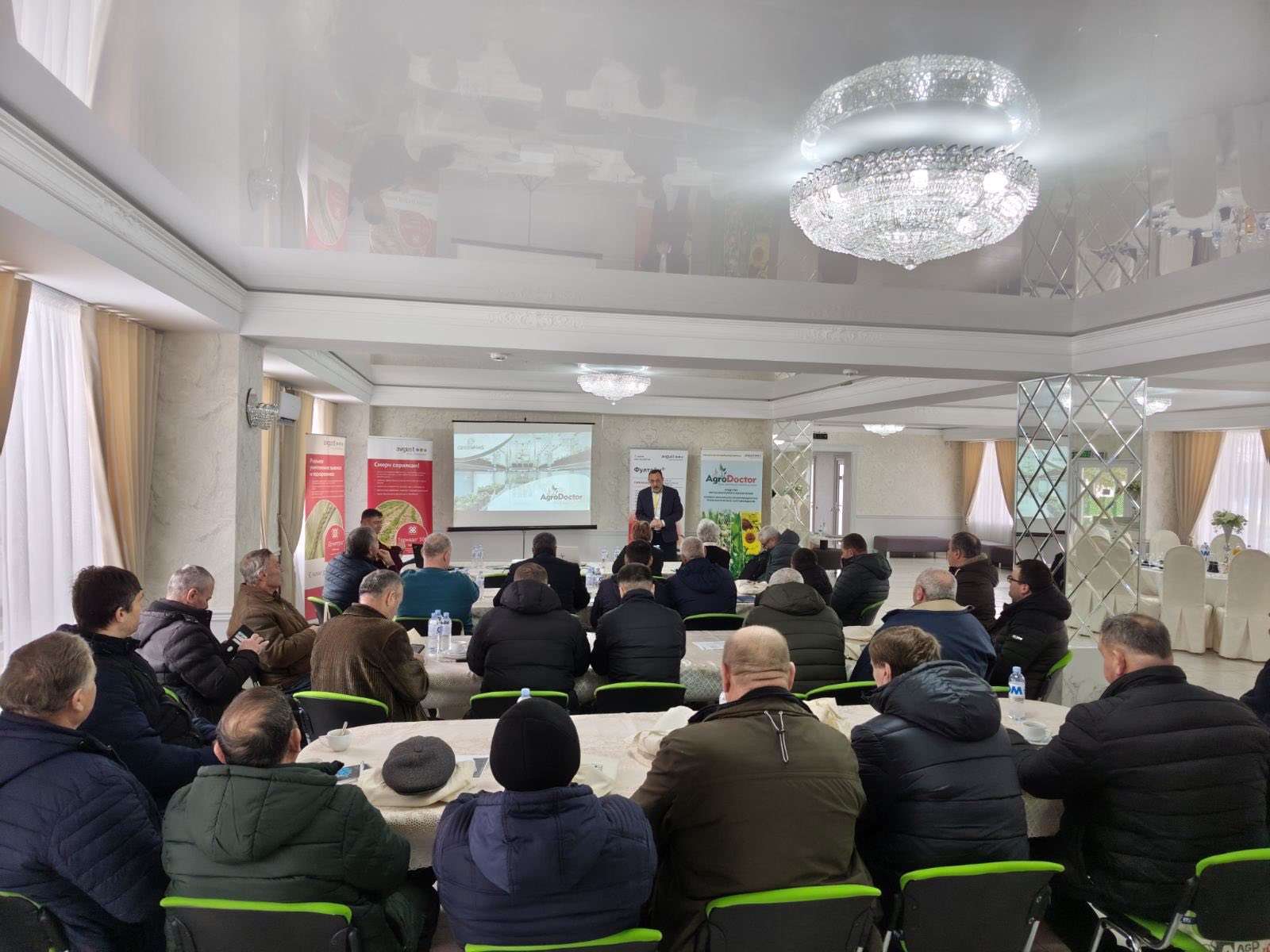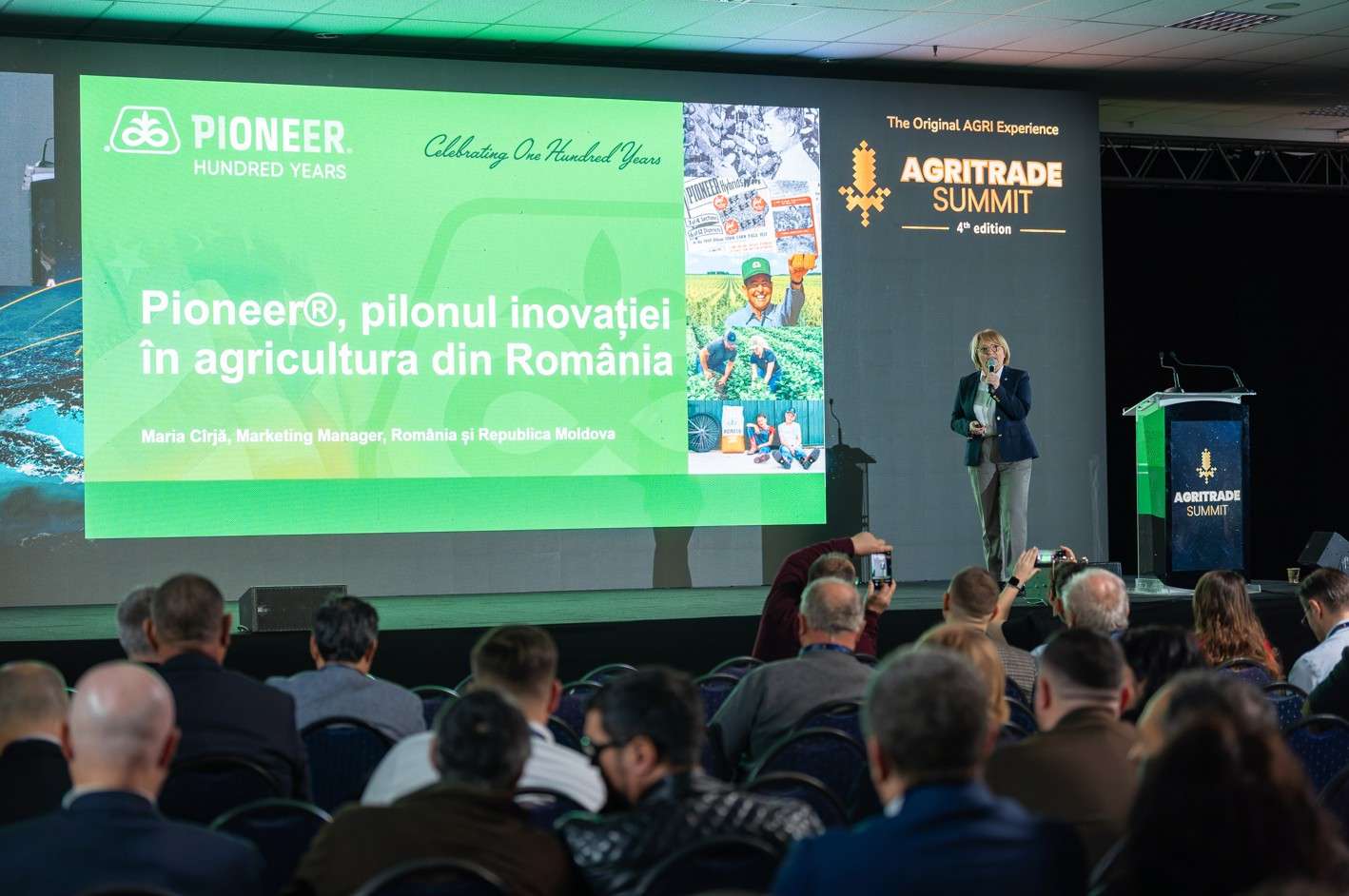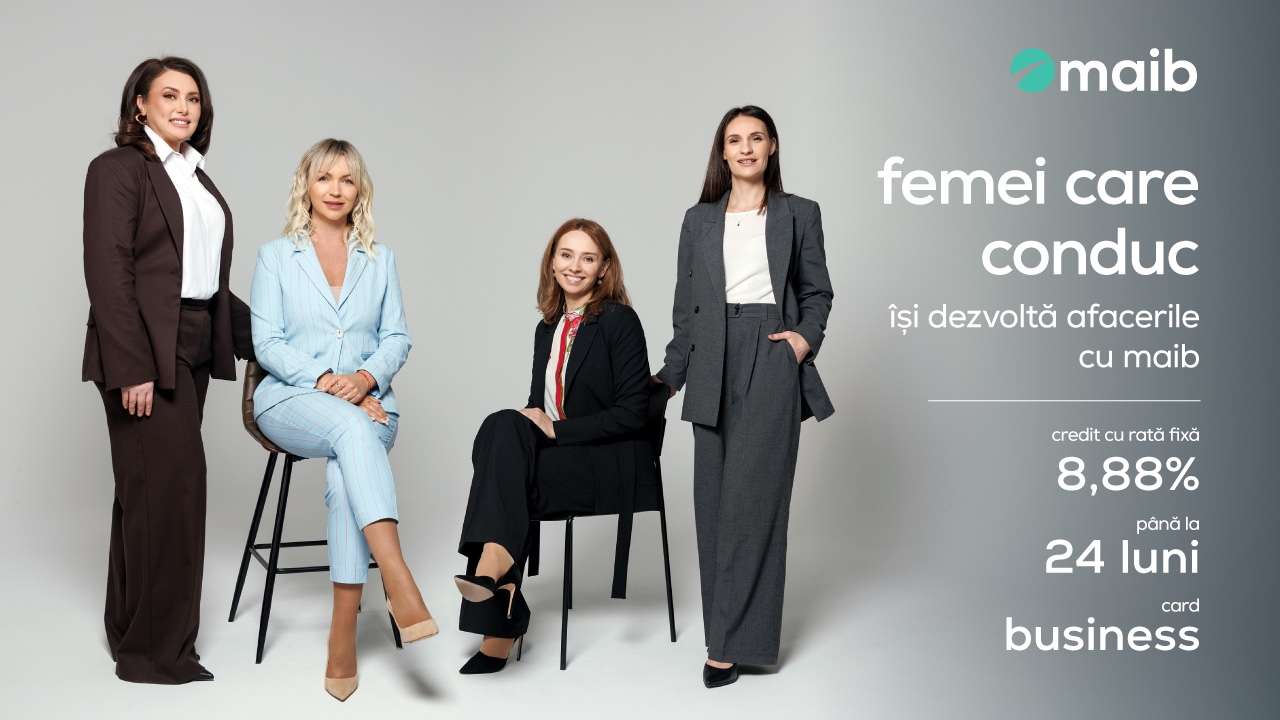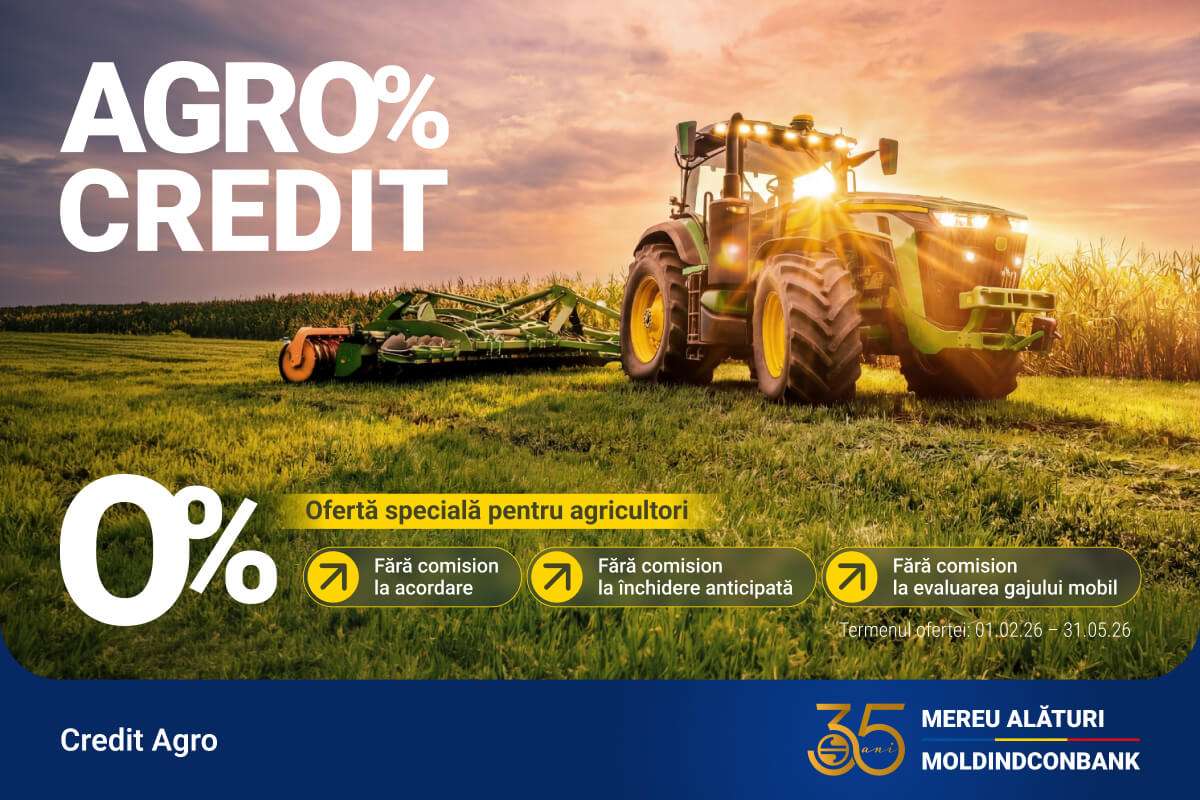For many years there has been a saying in Moldova: “If the village disappears, the state will disappear”. Nobody disputes it, traditionally agreeing with the rural basis of our statehood. But the “state-forming village” is, in fact, not a place; it is the people who live and, most importantly, work on the land: growing grain and cattle, fruits and grapes – everything our country has been and, we hope, will be rich in. And as one agricultural season flows smoothly into another, so one generation of farmers gradually replaces the other. At the same time, children work shoulder to shoulder with their fathers for most of the agricultural cycle of life, rejuvenating and refreshing the family farms, bringing them into the rank of modern, high-tech agribusinesses.
The AGROEXPERT editorial team has been nurturing the idea of showing the process of “agrarian evolution” in Moldova as a set of life experiences of farmer families engaged in agribusiness. Finally, we launch the Agrodynasties column. Its first “family saga” includes the most important episodes of life of two generations of agribusinessmen Tatarciuc – two Alexandrs, father and son.
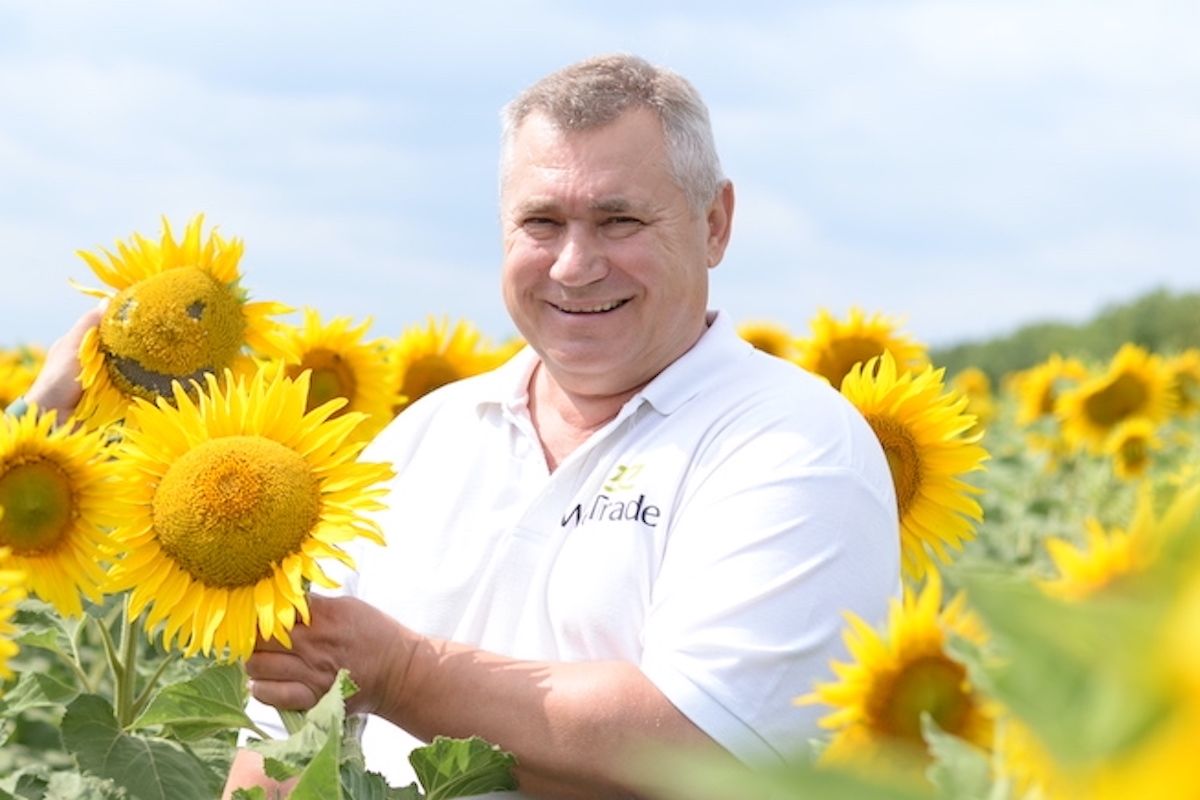
ALEXANDR TATARCIUC, FATHER
Episode 1
I was born in Moldova, in the Ukrainian village of Iliciovca, Floresti district. I had an ordinary childhood of a village boy, moderately mischievous. The only “inconvenience” was that my neighbor was a collective farm chairman. His GAZ 69 fascinated me, I wanted very much to drive it. But it did not constrain me much, it did not inspire anything. My father was a lead man of a horticultural and wine-growing team, a collective farm activist and a great pragmatist in life. At first, he wanted his son to succeed in the profitable profession of veterinarian. Then, in the late USSR years, my father bought an 18-hectare plot of land, my great-grandfather’s homestead, for his children. The idea to plant an apple orchard came into his head, it was the time when there was a boom of intensification of horticulture in the region. And, of course, hopes for future income from his own fruits motivated him. I was instructed to dig a hundred holes, seedlings were bought and planted. The process was vividly remembered by the taste of sweat as I carried buckets of well water under the sun from afar to water the trees. That was probably the first time I felt a “tingle”. And as a reward – there were visible results of my labor. But those were just harbingers. The decision to devote myself to farming had not yet matured. I had a crazy idea to become a lumberjack after ten years of school.
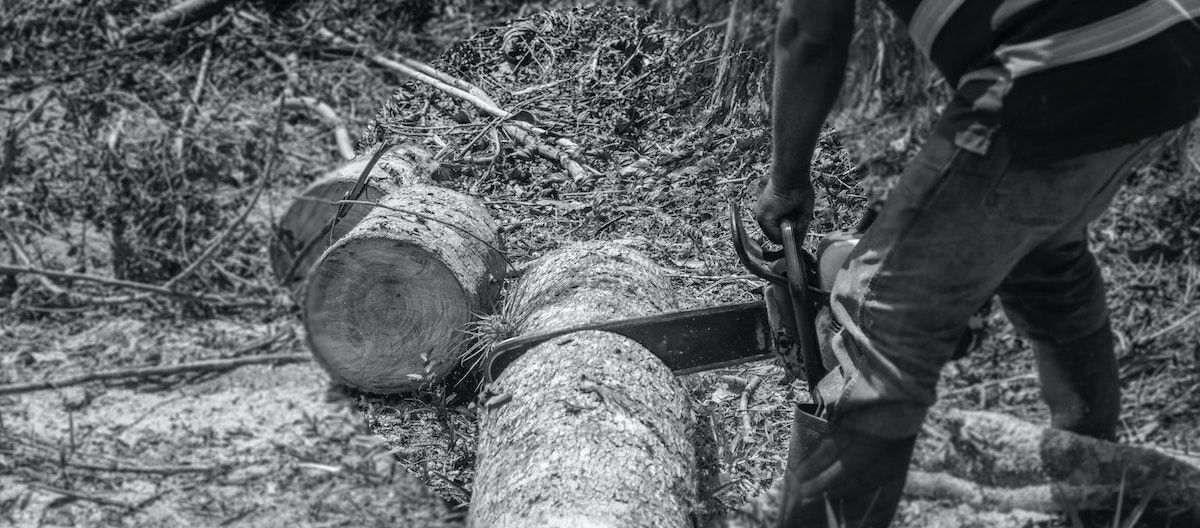
Episode 2
What interests did I have in my youth? Sports and studies, but not the army. I was not a conscious pacifist, but I was close to it. I was admitted to a vocational school for physical education, but there was no reserve-officer training department, so I transferred to a vocational school for telecommunications, to the department of cable line communication, and I graduated with honors. Three years of active study, three construction brigades, but still no certainty with the career choice. I made a conclusion that telecommunications were not my thing. But the student construction brigades allowed me to gain experience, to manage a team of 28 people, sometimes 3-5 years older than me, and to solve non-standard tasks.
My apple orchard, to which I rushed from Chisinau at the first opportunity, awakened my interest in agriculture. As a consequence, I made a steep U-turn. I entered the Faculty of Horticulture at the Agricultural Institute. After the second year, an opportunity arose for the top students – to study abroad, in Bulgaria or Hungary. I chose the first one, but ended up in the second one, thanks to the deputy dean, who decided that the Bulgarian language was too easy. And I thank him for that. It took me a year to study Hungarian. Then I went to the University of Budapest, to the Faculty of Horticulture and Landscape Design. I was admitted as a second-year student. I was 22 years old and I had an interesting study, useful communication with the local environment, where the seeds of private agribusiness were ripening. I had a chance to take part in it. My first private mini-business: together with a Hungarian friend we carried out all the work caring for plants on the Hungarian farms. It was not only a good income, but also the experience of planning and executing work on demand. But it was especially useful to see how their commercially focused agricultural research and production systems worked.
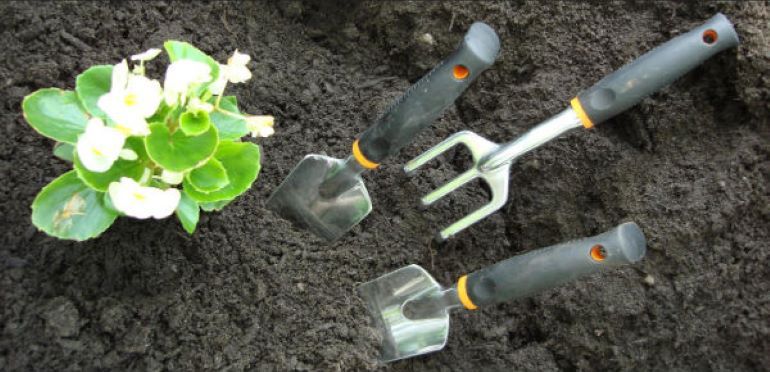
By the way, when I was a fourth-year student, fate brought me together with Professor Pavel Chintea, a specialist in ecological genetics at the Academy of Sciences of the MSSR. He was then doing a three-month internship at our university, and I was asked to help with the translation. His main topic was the synthesis and practical use of biologically active substances (growth regulators), which were extracted from pepper and tomato seeds. Vials with his “holy water” were a sensation at the departments of fruit and vegetable growing (nursery). With his cooperation, prospects began to dawn for the first research and production cooperative at home, in Moldova, where he was a co-founder. But at the time, it seemed to me, a graduate of a Hungarian university, that there were more advantageous options. For example, the offer from a Hungarian state seed company to become a sales representative in Moscow (but there was an insoluble problem of not having a Moscow registration). I had an opportunity to enter post-graduate school for free and to work as a gardener for the Soviet ambassador in Budapest. But the Motherland called me back to work out the costs of education: I was assigned to the inter-collective farm orchard in Floresti district.
Episode 3
August 1988. Moldova. I was working in the research and production cooperative Agros, whose founders were Mihail Titov, Emanuil Blanc and Professor Pavel Chintea. What did we do? Many things. My line of work was renting refrigerated warehouses, purchasing apples for shipment to cold regions, republics of the USSR. My salary was 180 rubles a month. Besides, I experienced the feeling of downshifting and nostalgia for cozy Hungary. Still, I could not complain – my close friends had much worse options in the realities of everyday life in the Soviet Union. Contacts with new, often weird but enterprising people were an outlet. For example, there were florists among them. And I was well acquainted with this subject thanks to my spouse (we got married being students in Hungary and for the rest of my life). My wife took floristry lessons from the head of the Ornamental Gardening Department who worked under the Horthy regime. Of course, flower business was more beautiful and interesting than picking apples on the collective farms.
Under the aegis of the cooperative, FloraLux was opened with two florist shops and seven employees in Chisinau. An international florist competition was held. In fact, we created a demand not only for flowers, but also for their thematic presentation (bridal bouquet, etc.), the Christmas wreaths made of conifers became a hit. Leonid Corol and I brought ribbons and other paraphernalia for them in checkered bags from Vilnius.
Then there were many other unusual things. For example, collecting snails in Soroca district for export to Greece. In the midst of the perestroika political debates, it was more than a useful drive.
Episode 4
The Hungarian experience of research and production cooperation came in handy. In our cooperative Agros we started the production of bioactive products for agriculture in the laboratory of the Moldovan Academy of Sciences. Through the district departments of agriculture, we obtained access to a wide audience of agricultural producers.
The idea was to organize “work for the result”, i.e. with the help of technologies applying our products to increase significantly the crop yield – this was firstly.
Secondly, we planned to divide the additional profits proportionally among all participants of the process: from us, suppliers of products and services, to the chairman of the collective farm, agronomist and machine operator, who was responsible for the strict compliance with the agricultural technologies that we provided.
We were able to put into practice Gorbachev’s slogan – the importance of the “human factor”. It was fantastically motivating: to do everything well and on time – from tillage to harvesting. And the limiting factors were the usual ones: amount of moisture and fertilizers, quality of seeds and agrotechnological measures. All collective farm fields had the usual phytosanitary background and agrotechnological trail, but there was always a plot (up to 40% of the field area) where our products were used. Yield increase was possible due to labor discipline and bioactive additives. Production and financial results came out, the number of contracts with farms began to grow.
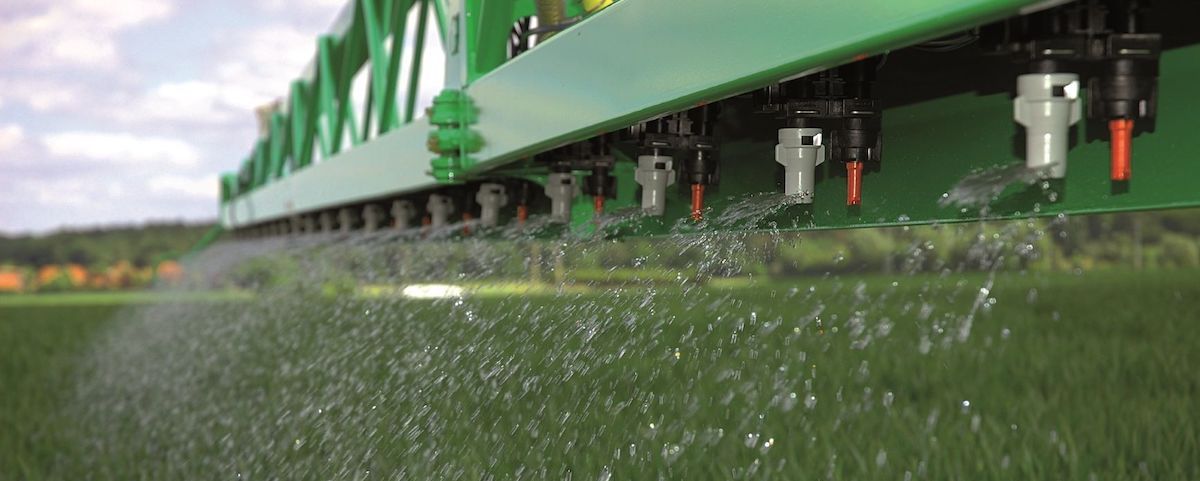
Along the way, the second area of cooperation was formed – quality repair of sprayers for application of PPAs (plant protection agents), i.e. those machines, through which the farms pumped the most money and, therefore, production costs. The actual output of sprayers, logically, should be maximum. We organized eight mobile teams and fine-tuned the process of autumn and winter defects identification and repair. Long before the spring field work, we knew exactly all the bottlenecks: what spare parts were most likely to be needed during the “hot season”. We placed orders in advance at the factories of Ukraine, Bulgaria, Hungary. As a result, microfertilizers - growth regulators, plus timely and quality preparation of equipment for field work allowed the farms to get a profitability of 100%, and in greenhouse farms – up to 200%. Our share of this profit allowed the cooperative to develop its operations/supply base. For example, we introduced to the market and commercialized a product that promoted pollination of alfalfa in a short period, and not “by floors”, but evenly. We found a non-standard technical solution for its application. I remember delivering this product to a farm in Stavropol Krai, where alfalfa was grown on 800 hectares. We doubled the yield. The output was tons of money. By the time perestroika started to fade, we had about 27 composition products for a wide range of crops; we cooperated with more than 40 greenhouse complexes in the USSR. Unfortunately, disruptions in the supply of PPAs and fertilizers began. Farms began to economize on basic fertilizers, and without a good base of major fertilizers, plant growth regulators, instead of increasing the yield, could either reduce it or not give a reliable increase. Then we tried to find a solution to this problem as well. With the help of a good friend Vladimir Sorokin, an outstanding organic chemist who worked in a classified research institute outside Moscow, we, together with a group of scientific practitioners from Novocheboksarsk chemical plant (a classified facility), creatively revised the technology of producing a product of a world-famous agrochemical manufacturer: the final product remained in the liquid phase, we reduced the dose of the active substance, added another component from another world-famous company and received a highly effective herbicide to protect cereal crops from dicotyledons and major monocotyledons. The product was in binary packaging, which was also a “revolutionary” solution for that time. Thus, two famous domestic products appeared: Cowboy and Cross. We set up their production in partnership with a Latvian company, again run by a good friend Vitaly Gotlib. Production orders were placed at the same Novocheboksarsk chemical plant at the other end of the USSR. This experience predetermined the conclusion: we needed our own developments, our own production, our own consulting agronomists. And we needed a complex technological package of products: seeds, fertilizers, consulting.
Episode 5
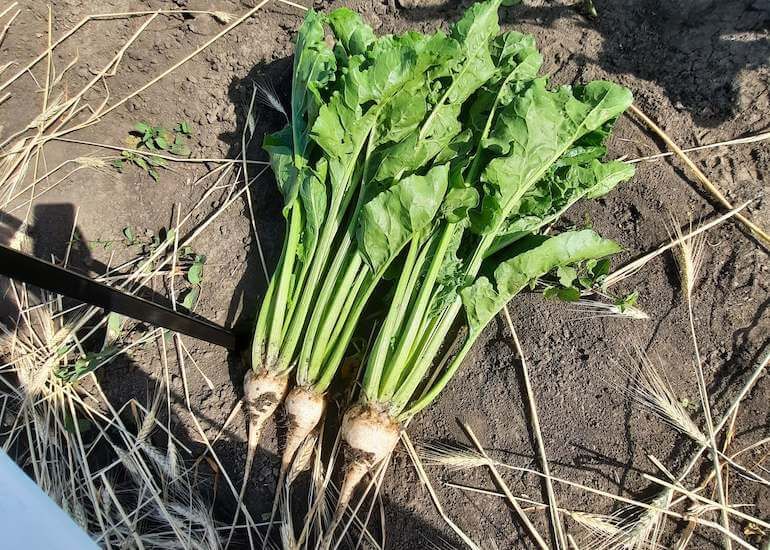
Seed production was a particularly great experience. In the late '90s and the first half of the noughties, we were engaged in the production of industrial crop seeds. First, this was sugar beets. We worked with the Institute for Sugar Beets in Kyiv, and its research and production stations for sugar beet seeds production; the Institute for Field Crops in Balti; Semger seed calibration company, which produced seeds in cooperation with KWS. And, by the way, we occupied about 65% of the seed market of Moldova and 30% of the seed market of Ukraine in this segment. By that time, we had 8 branches in Russia and 10 branches in Ukraine.
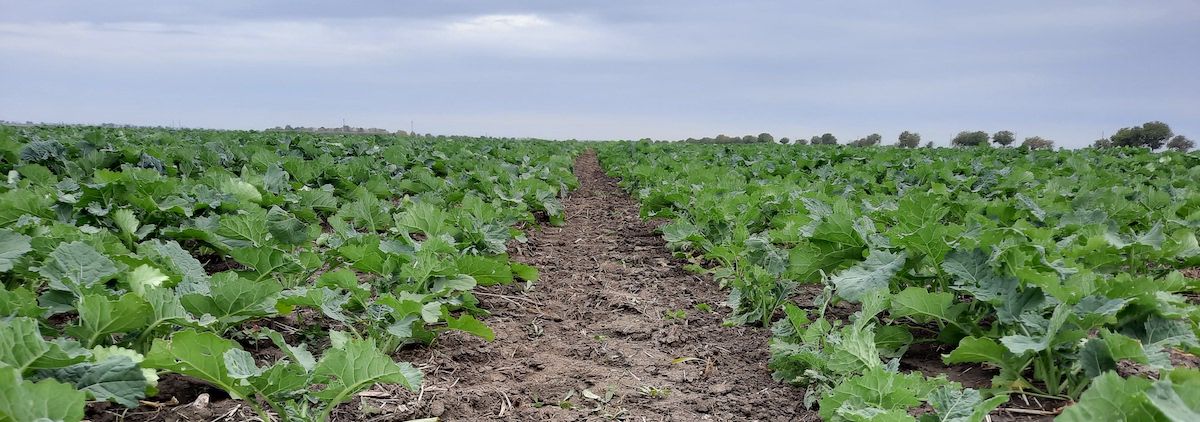
Then we became the first commercial structure that began to convince local farmers that rape plant was not a weed. And while on a wave of interest to this oil-bearing crop, which was “new” for Moldova, the local research institute tried to promote seeds of Belarusian varieties, we came to agricultural producers focused on progress and high-tech with rape plant hybrids from one of the leading global breeders-producers – NPZ Lembke. Our company – at that time it had already been transformed into Mavisem company – formed a very solid production base: a seed calibration plant for major crops in Soroca, a seed-growing agricultural enterprise in Crimea. The scale of this line of business can be judged by the fact that at that time the partner company SESVanderHave built a plant near Kyiv for processing seed material, which for a long time worked mainly on our raw materials – up to 80% in the structure of the raw material program.
Episode 6
A very exciting part of our story was the organizational transformation: from Agros to Agros-Intex, then Mavisem and WeTrade. Separate businesses such as WT AGROPROFI, CEREALE de AUR, ORGANIC LAND were developed from WeTrade.
I have witnessed succession of several generations of managers – people from whom I have learned a lot and who, I hope, have learned something good and useful from working with me. The team of company employees has also changed in unison with the demands of the Moldovan market of agricultural resources. Both then and now together with Mihail Vainer, my business partner, friend and co-founder of WeTrade group of companies, we have paid a lot of attention to this.
This area is very closely connected not only with mathematical calculations, but also with human relations, their quality and polarity. Alas, not everything has a silver lining.
In this regard, I particularly remember an extremely difficult period: from the dry agricultural season of 2007 we moved to 2008 with the debts in arrears of about MDL 70 million. However, both the backbone of the team and the customer base were preserved. Using this base, we managed to restore business relations with foreign partners – the producers of inputs. I am very grateful to those people with whom we managed to survive the crisis. Already by the end of 2009, our company had settled its debts to the suppliers of goods. This experience taught us a lot. Among other things, we have learned very clearly: it is necessary to pay debts, it is a guarantee of integrity and trust-based relations in the future. Now we have a reputation of the toughest operators in the market of agricultural resources. But we don’t demand what does not belong to us; we only want to get back what’s ours.
Episode 7
There was a very meaningful and emotional moment when we “went into the field”. It was prompted by the idea that we would give a solid share of our physical resources to agrarians in the spring and would get a share of crop outcome in the autumn. We assumed that our own agricultural production in a situation of stable supply of own resources would provide a guaranteed profitability that exceeded that of simple commerce in the range of 30%. And this, in turn, would give a financial “safety cushion” in case of fluctuations in the trading business. Of course, creation of your own agricultural enterprise, the land acquiring process was very exciting.
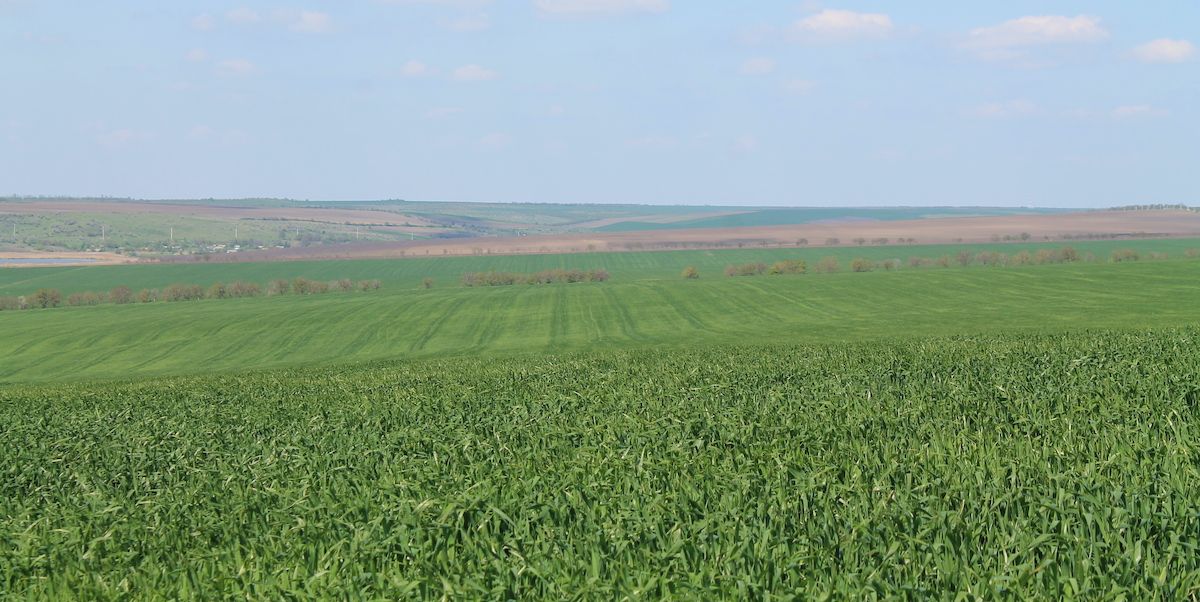
The euphoria from “developing virgin lands” can be compared to falling in love or other strong passions. In fact, everything turned out to be more complicated and, of course, more expensive than we imagined at the beginning of the way. Alas, there were mistakes associated with the inertia of extensive expansion of agribusiness, due to lack of necessary and sufficient practical experience. In addition, we had very high hopes for no-till technology, which, again, was not supported by the experience of its adaptive application in Moldova, taking into account the soil, climatic and agronomic realities. As a result, in three years we built a company with a land bank of 18,000 hectares, an infrastructure for grain storage and a full range of new equipment. But two dry years of 2011 and 2012, “mistakes” of growth, and the shortage of circulating assets prevented us from enjoying the result. It was decided to sell this agribusiness. But we used the experience later in other favorable conditions.
Episode 8
There are things that are always with us: our knowledge and experience, our outlook on life. And there is the “other half” of these intangible values: relationships with our immediate circle. Relatives, friends, colleagues – all of them are in the same social circle. Intentionally or not, but we all have the same topics of conversation, similar or even common life situations. At the same time, everything happens spontaneously, no one imposes anything on anyone. We simply tell each other something, we contemplate together, and at some point, we experience similar feelings. I did not intend to raise my son to be an agrarian. But, apparently, one day something “got him”, just like many years ago it happened to me.
АЛЕКСАНДР ТАТАРЧУК, СЫН
Эпизод 1
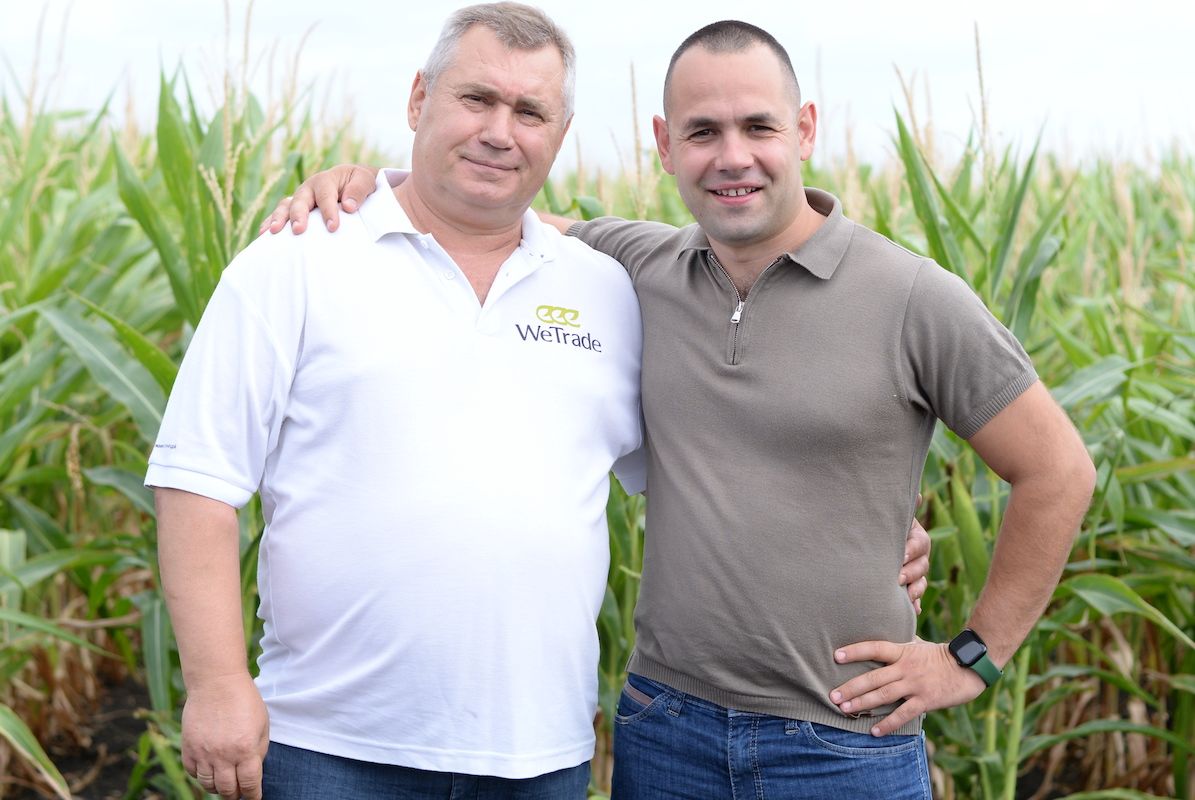
Интересно ли было слушать отца и наблюдать за его делами? Да, интересно. Началось всё с дачи в Болгарии. Мое детство, практически до 13 лет, прошло там. А там природа всегда рядом: 12 соток земли, овощи, фрукты. Бабочек-белокрылок ловил, а дедушка еще за это приплачивал как за помощь в защите сада и огорода от вредителей. Помню, как впервые посадил фасоль, поливал ее, наблюдал, как растет. Получилось. Успех вдохновил на следующий шаг: посадил жареные семечки подсолнечника, тоже поливал, а они почему-то не выросли. Зато понял, что в любом деле первичны знания, только вместе с ними старание дает результат.
Эпизод 2
Переломный момент – первая поездка на сельскохозяйственную выставку «Агритехника» в Ганновере. Любое событие такого формата – явление само по себе неординарное, а на неподготовленного человека, особенно совсем молодого, оно гарантированно производит сильное впечатление. Большие мощные машины, при этом новые, блестящие и «пахнущие» очень по-взрослому серьезным делом. Другая страна – Германия с отличными дорогами, ухоженными полями, необычными людьми, привыкшими к четкому порядку во всем. Это вызвало желание примерить на себя такой же образ жизни. Началась целенаправленная подготовка к учебе за рубежом.
Эпизод 3
Ненавязчиво, но важную роль в выборе пути «в науку» сыграл отец. Проанализировав с высоты своего опыта профили и программы нескольких американских и канадского университетов, уведомивших о том, что они готовы принять меня на учебу, он сделал существенные выводы. И предупредил меня, что, во-первых, учеба на другом континенте – это гарантированно иной сценарий жизни, не предполагающий возвращение в Молдову; во-вторых, это совсем иной, не европейский формат сельского хозяйства. В итоге это оказался не германский университет, не американский и не канадский, а британский – в Ньюкасле, факультет агробизнеса. Подкупил высокий рейтинг среди вузов, готовящих специалистов сельского хозяйства. Контингент студентов – потомственные фермеры, семьи которых ведут бизнес сотни лет, но в основном парни из глубинки, падкие на атрибуты комфортной городской жизни. Меня больше интересовала именно учеба.
Эпизод 4
В 2011 году, перед последним курсом, нас уведомили о возможности взять годичный академический отпуск, поработать в агробизнесе, чтобы потом вернуться на выпускной курс, уже обладая каким-то практическим опытом, ориентирами на дальнейшую деятельность. Позвонил отцу, спросил, как поступить, есть ли варианты на примете. В Молдове полезной практики, такой, чтобы научиться чему-то действительно важному и правильному, причем применимому везде в Европе, очень мало. Посовещавшись, решили, что будет лучше, если я получу опыт «на стороне», а домой вернусь с багажом новых навыков. Особенно хотелось получить опыт работы не в трейдинговых компаниях, а на иностранных сельскохозяйственных предприятиях. В итоге почти случайно нашелся вариант: чешская компания (PPF Group), реализующая агропроект «РАВ-Агро» в Воронежской области (управление холдингом со 120 тыс. га сельхозугодий, 6 тыс. га дойного стада КРС). Предложили должность ассистента кризис-менеджера с задачей сделать агрохолдинг прибыльным. Мне моя роль показалась интересной: переводчик и спикер от лица руководства, возможность быть в курсе почти всех информационных потоков. Порадовала и солидная для того времени зарплата. Загруженность – 40-часовая рабочая неделя. За год намотал по РФ тысячи километров.
Вначале мы натолкнулись на специфический механизм, действовавший до нас в агрохолдинге – «авторитарно-отстраненный»: все решения спускались сверху, причем «верхи» мало заботились о благополучии «низов», а те, в свою очередь, щедро расплачивались безразличием к вопросам эффективности работы и результатам труда. Технику ремонтировали непосредственно перед выходом в поле. Аудит многолетних кормовых культур – никто ничего не знает, на полях не был. Кучи «скелетов в шкафах». Систему необходимо было менять. Особо запомнилось, как моему руководителю пришлось уволить весь проворовавшийся менеджмент хозяйства на 10 тыс. га. И как антикризисная мера: «Ты едешь туда, надо отсеяться». Приехал, поговорил с работниками среднего звена и ниже. Общий язык нашли. Засеяли почти всё. Такая вот первая жесткая проверка в деле. Считаю, что это был мой «мастерат» – такой, каким он должен быть у каждого студента. В сухом остатке: чувство масштаба, понимание уровня жесткости правил бизнеса, уверенность в ценности человеческих отношений даже внутри корпорации-«машины». И наверное, самое главное: я понял, что больше всего мне нравится именно прикладной аспект агробизнеса – работа на земле.
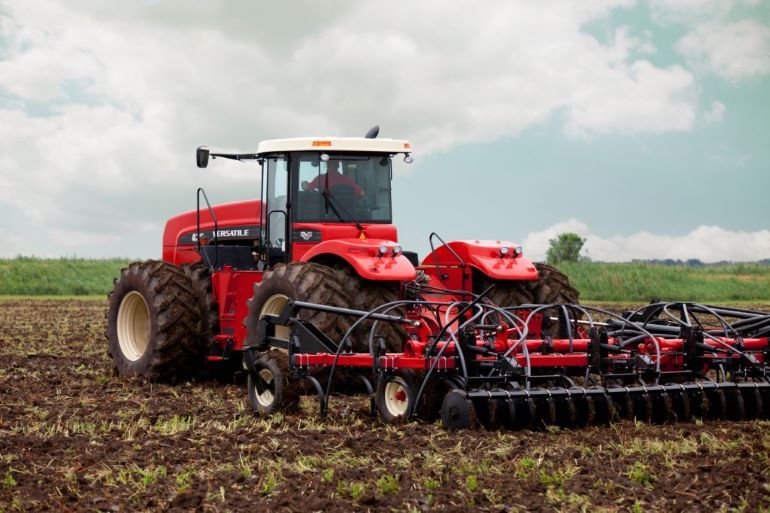
Эпизод 5
С «новыми мозгами», из такого вот драйва – опять в аудиторию вуза. И уже четко понимаешь дистанцию между академическими знаниями и реальной практикой бизнеса, особенно такой, какова она ближе к краю «цивильного мира». Но психологически поддержал случай, новый вызов: продвинутая игра-симуляция по заданию преподавателя, проверка виртуальным бизнесом в течение нескольких месяцев. Задача – предпринять ряд управленческих действий, направленных на повышение стоимости игровой компании. Играют группы, на кону приз – 500 фунтов от вуза. Можно было сыграть методом «проб и ошибок». Но я нашел программу-«калькулятор» ценой условно 100 фунтов. Предложил скинуться коллегам по группе. Условие: в случае выигрыша мне причитается с него процент. Купили, скачали, играем. И получаем экспонентный рост нашего виртуального бизнеса. Начали оказывать услуги другим группам. По ходу дела поняли их концепты, алгоритмы принятия решений – в общем, опосредованно контролировали всю систему. Вывод: над крупными проектами, в том числе дипломной работой (для начала), необходимо работать лично. И видеть перспективу.
Окончил вуз почти на отлично. Могло быть и лучше. Но разошлись в видении агробизнеса с преподавателями. Там профессура дает мало информации, лишь корректирует направления твоего поиска. А вот возможности его осуществить огромные – за счет университетской подписки на мировые научные журналы, прочие открытые и закрытые источники. Их вузы формируют навык и привычку учиться постоянно. Плюс студенческие контакты с однокурсниками и прочими стейкхолдерами по всему миру.
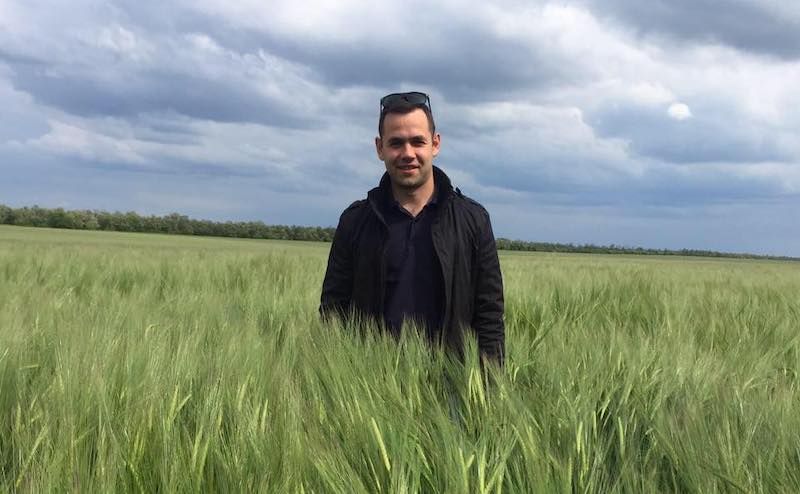
Эпизод 6
После учебы был вариант вернуться в РФ на руководящую должность одного из предприятий холдинга. Или другой вариант – набираться опыта на позиции эксперта-агронома в украинском холдинге. Но уже тогда возникло предчувствие войны между этими странами. Кроме того, как и предполагал отец, передо мной встал экзистенциальный выбор: карьера в зарубежном бизнесе или семья дома (семью на расстоянии трудно сохранить). Я выбрал семью, женился. Да и правильный агробизнес дистанционно не выстроить – им необходимо жить на полях. Иначе это не работает. Поэтому начал строить карьеру дома, в Молдове, – в WeTrade Agro, отвечал за закупки, контроль качества. С благодарностью вспоминаю: коллеги по работе меня приняли, а руководство предприятия не побоялось делегировать полномочия и даже с пониманием отнеслось к некритичным ошибкам. Теперь я хорошо понимаю, что они и есть самый важный триггер развития.
Эпизод 7
Второй раз я выбрал семью, когда ушел из проекта WeTrade Agro после его продажи. Вернулся в семейный бизнес, в компанию WeTRADE. И проработал в ней пять лет. Начал как консультант, потом стал директором. Постарался собрать молодую команду агрономов, менеджеров по продажам. Необходимо было дать адекватный ответ вызовам. Отец, основатель компании, переключился на другой род деятельности (организация новых бизнесов: Cereale de AUR – кондитерский подсолнечник, производство и переработка, ядро подсолнечника, а затем OrganicLand – земельный проект). Подобные «тектонические сдвиги» для любой компании не проходят незаметно. В сложившейся ситуации своей миссией я считал сохранение клиентов, привыкших многие годы работать лично с моим отцом. А ведь клиентская база – основа каждого бизнеса. Она может и оставаться стабильной, и уйти из-под ног, если что-то не так, если совершаются ошибки.
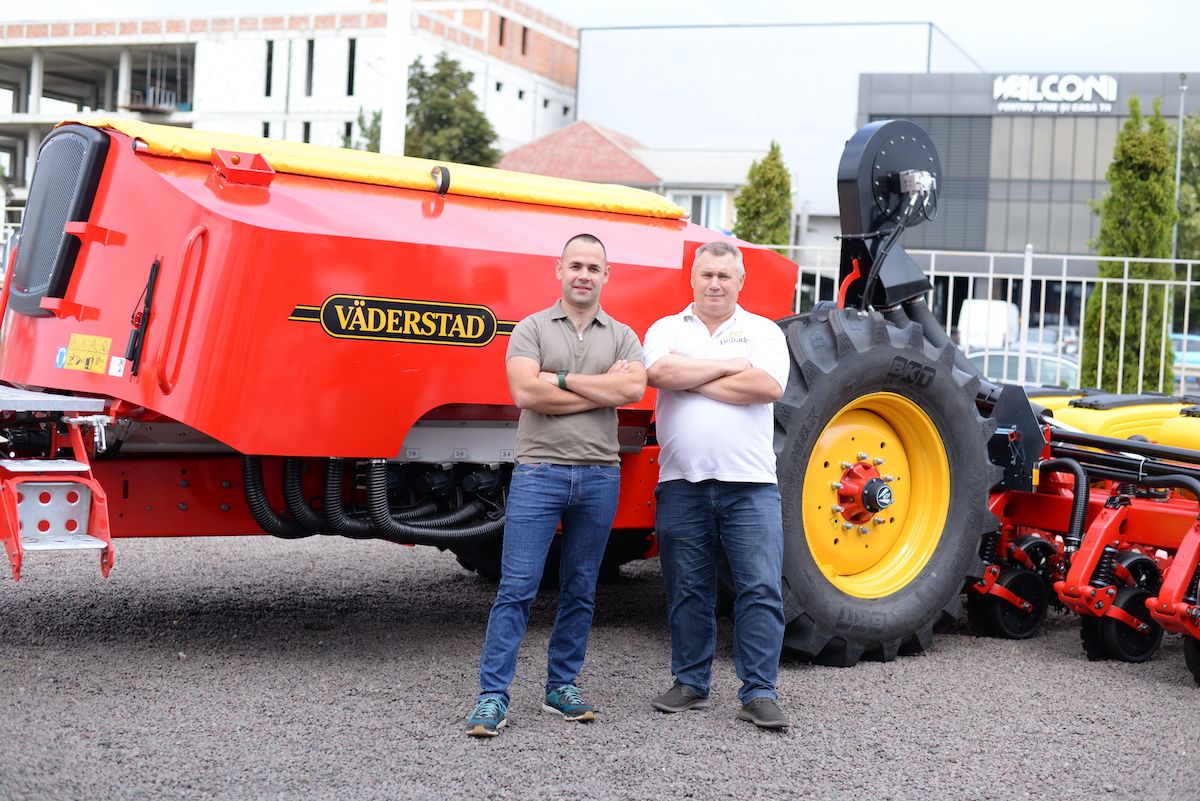
Эпизод 8
Видимо, в жизни каждого фермера и агробизнесмена случается «идеальный шторм». В моем случае, как казалось совсем недавно, им стала засуха-2020. К концу года мы тогда собрали около 70% «дебиторки» – лучше, чем конкуренты. Однако опять возникла потребность в диверсификации агробизнеса, в дополнительной «подушке безопасности». В принципе, на этом поприще мы никогда не останавливались. Так, к настоящему моменту у нас уже создано достаточно эффективное промышленное производство – завод по производству ядра кондитерского подсолнечника. Но «сидеть на табурете с двумя ножками» все-таки не очень удобно и надежно. Как минимум нам необходимы гарантированные объемы сырья для оптимальной загрузки перерабатывающего предприятия. В общем, было принято решение «вернуться в землю». Важно, что на этот раз у нас есть исчерпывающее понимание, сколько и чего необходимо вложить и как выстроить процессы, чтобы добиться стабильной доходности на уровне $500–600/га. В Ильичевке, родном селе отца, мы на пять лет арендовали 800 га. Второй крупный лот земли удалось получить в районе Орхей и Резина. На этом процесс «собирания земель» мы намерены остановить. Теперь основная моя задача – сформировать высокодоходный, модельный бизнес – для всех нас, для односельчан. И измеряться он будет не «трейдерскими эпизодами – приобрел-продал-получил», а полноценными сельхозсезонами – полными циклами жизни, нашей жизни.
